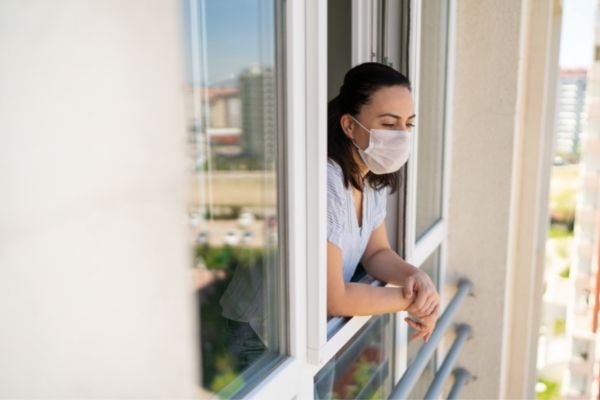There’s no perfect time to get sober–or is there? The COVID-19 pandemic caused a global shutdown which drastically changed all of our lives. For many, the cancellation of social events and everything that comprised daily life as we knew it (and with no end in the foreseeable future) was a time of panicked uncertainty. However, the global shutdowns may have been a blessing to disguise for those in or starting recovery. Here are the 6 benefits of getting–and staying–sober during quarantine (and why being sober is amazing in general).
6 Reasons to Get (or Stay) Sober During Quarantine
1. Less social pressure
Social gatherings can contribute to drug use in a number of ways. Many turn to drugs or alcohol to cope with anxiety about situations or “loosen up” in order to be more sociable or likable. Then there are the social pressures that come along with it. These pressures can be caused by the situation itself (going to happy hour with coworkers or toasting to the New Year at an NYE party) or from the people you’re with who might make a commotion should you choose not to partake. The lack of events and by extension, social interaction, means fewer pressures to drink or do drugs where you otherwise feel compelled.
2. Saving money
Not going out also has distinct financial advantages. Many people found that their savings went up tremendously once they were no longer shelling out dollars on food, drinks, tipping, and parking. For someone interested in getting sober, this break from spending could make all the difference that enables someone to enroll at an addiction treatment center, which can be pretty pricey. The cost of getting treatment is cited as one of the leading reasons why those who struggle with addiction fail or refuse to seek treatment.
3. More privacy and free time
This one’s a biggie as many of us spend more time in the workplace than we do our homes. The pandemic saw a drastic shift in our employment situation. For many, it involved layoffs and furloughs. For others, it became a shift to fully-remote work. Either situation allows for more free time that could be channeled into an addiction treatment program or getting some other form of help like going to Alcoholics Anonymous meetings. Even better still, not having to worry about day-to-day interactions with coworkers also allows for added privacy.
4. Avoiding crowded hospitals
While no one ever wants to be in a hospital and undergoing health issues, this sentiment has increased ten-fold. COVID-19 resulted in hospitals being filled beyond capacity and ERs having extremely long wait times. In many cases, hospitals around the world stopped almost all other types of procedures and were focused solely on treating those stricken with the coronavirus. Not a great time to be having liver or heart issues, two of the most common and most serious types of health consequences from drinking or doing drugs. Maintaining sobriety or taking the first steps towards getting sober can help keep you healthier, minimizing the need for medical attention that you might not be able to receive in a timely manner.
5. Increased access to virtual resources
The uncertainty of COVID-19 and what the post-pandemic future would look like made a lot of people stressed. One of the silver linings of the virus is that it awoke a newfound appreciation for mindfulness and both physical and mental well-being. As a result, it’s a lot easier to find all sorts of classes of things like yoga and meditation online–a boon for someone to quell the mental hardships that can come with recovery. With such practices being much more mainstream, it can also make an individual feel a lot less self-conscious about taking up such an activity.
6. Drugs and alcohol make stress worse
Stress is one of the most common reasons why people turn to drugs or alcohol. As one might imagine, rates of drinking and drug use skyrocketed during the early stages of the first lockdown. While your first instinct may be to join these people in consuming mind-altering substances to get through such a weird moment in history, it’s likely to only make things worse.
Drugs and alcohol overstimulate the nervous system making us more prone to stress and thus, more stressed out in the long run. You would be both more sensitive to situations (e.g. getting stressed out by smaller things) and remain stressed for longer because of a now misfiring fight-or-flight response. Further, as anyone who’s struggled with addiction knows, excessive drinking and drug use can cause a host of problems such as strained relationships, money troubles, or health complications. All of which are situations that can be highly stressful in and of themselves.
